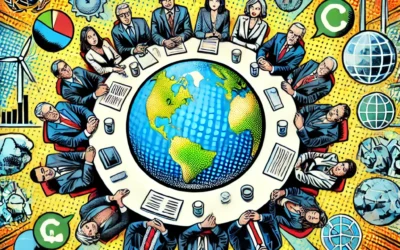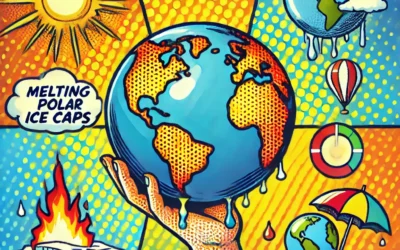Municipal Waste: A Challenge and an Opportunity for Climate Action
Municipal waste, also known as trash or garbage, is a combination of all of a city’s solid and semisolid waste. It includes waste from households, businesses, institutions, and public spaces, such as food, paper, plastic, metal, glass, and textiles. According to the OECD Municipal Waste Indicator, the average municipal waste generation per capita in the OECD countries was 517.7 kg in 2019, with a wide variation across countries. In this article, we will explore how municipal waste affects the climate, and what we can do to manage it better.
How Municipal Waste Affects the Climate
Municipal waste affects the climate in several ways, depending on the type, amount, and treatment of the waste. Some of the main effects are:
Greenhouse gas emissions: Municipal waste is a source of greenhouse gas emissions, which cause global warming and climate change. The emissions occur at different stages of the waste management cycle, such as collection, transport, treatment, and disposal. The most significant source of emissions is the decomposition of organic waste in landfills, which produces methane, a potent greenhouse gas. According to the Global Material Resources Outlook to 2060, municipal waste could account for 10% of global greenhouse gas emissions by 2060, if no action is taken to reduce it.
Resource depletion and pollution: Municipal waste also consumes and contaminates natural resources, such as water, land, and energy. The production of the materials and products that end up as waste requires a large amount of water and energy, and generates a lot of pollution and waste along the way. The disposal of the waste also affects the quality and availability of the resources, as it occupies land, leaches pollutants, and emits odors and noise. The waste can also harm the ecosystems and the biodiversity that depend on the resources, and affect the human health and well-being.
Waste generation and disposal: Municipal waste also influences the amount and type of waste that is generated and disposed of in the economy. The consumption patterns and preferences of the society determine the demand and supply of the materials and products that become waste. The waste management policies and practices determine the incentives and constraints for the reduction, reuse, and recycling of the waste. The waste can also create new markets and opportunities for the waste management industry and the circular economy.
What We Can Do to Manage Municipal Waste Better
Municipal waste can be managed better by adopting and promoting the principles and practices of the waste hierarchy, which ranks the waste management options according to their environmental impact and economic efficiency. The waste hierarchy consists of the following options, from the most preferred to the least preferred:
Conclusion
Municipal waste is a combination of all of a city’s solid and semisolid waste. It affects the climate in several ways, such as greenhouse gas emissions, resource depletion and pollution, and waste generation and disposal.
Municipal waste can be managed better by adopting and promoting the principles and practices of the waste hierarchy, such as prevention, reuse, recycling, recovery, and disposal. Municipal waste is a challenge and an opportunity for climate action, and can contribute to the goals and targets of environmental policy and sustainable development.






